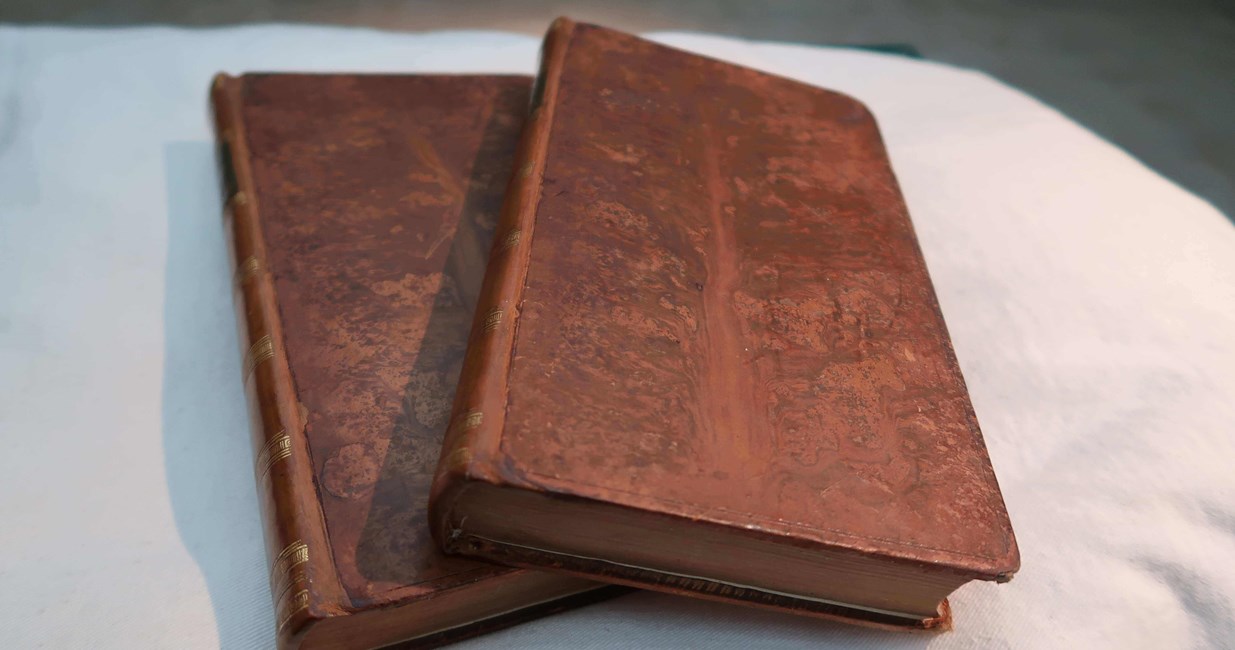Book Five
Of the Revenue of the Sovereign or Commonwealth
In the final book of the Wealth of Nations, Smith considers the role and responsibilities of government in a commercial society, and how these should be paid for.
Smith saw defence as the prime responsibility of government, closely followed by the administration of justice. This required the upkeep of an army and a navy, as well as a judiciary, all of which were expensive.
Smith also believed that a successful commercial society relied on certain services and public works which only government could supply. Public works included roads, bridges and ports – what we would now term ‘infrastructure’. Among services, Smith saw education as the priority.
In a sense, this brought Smith back to the beginning Book One with its stress on the division of labour. By recognising how the repetition of few simple tasks could limit and frustrate an individual, Smith argues that education and entertainment are necessary to promote potential, happiness and well-being.
Taxation
To pay for all this, government needed revenue. This was to be raised from taxes, rather than by borrowing which diverted capital away from investment towards consumption.
Smith argued that to be fair, taxes had to be proportionate to income, consistent and convenient to pay.
Subjects of every state ought to contribute towards the support of the government, as nearly as possible, in proportion to their respective abilities; that is, in proportion to the revenue which they respectively enjoy under the protection of the state.
The tax which each individual is bound to pay ought to be certain, and not arbitrary.
The time of payment, the manner of payment, the quantity to be paid, ought all to be clear to the contributor, and to every other person.’
‘Every tax ought to be levied at the time, or in the manner in which it is most likely to be convenient for the contributor to pay it.’
‘Every tax ought to be so contrived as both to take out and to keep out of the pockets of the people as little as possible, over and above what it brings into the publick treasury of the state.’
Defence
‘The first duty of the sovereign, that of protecting the society from the violence and invasion of other independent societies, can be performed only by means of a military force.’
‘That degree of liberty which approaches licentiousness can be tolerated only in countries where the sovereign is secured by a well-regulated standing army. It is in such countries only, that the publick safety does not require, that the sovereign should be trusted with any discretionary power, for supressing even the impertinent wantonness of this licentious liberty.'
Justice
‘The second duty of the sovereign, that of protecting, as far as possible, every member of the society from the injustice or oppression of every other member of it, or the duty if establishing an exact administration of justice, require too very different degrees of expence in the different period of society.
‘It is only under the shelter of the civil magistrate that the owner of that valuable property, which is acquired by the labour of many years, or perhaps of many successive generations, can sleep a single night in security.’
‘Civil government, so far as it is instituted for the security of property, is in reality instituted for the defence of the rich against the poor, or of those who have some property against those who have none at all.’
Public Works
The third duty of the sovereign or commonwealth is that of erecting and maintaining those publick institutions and those publick works, which, though they may be in the highest degree advantageous to a great society, are, however, of such a nature, that the profit could never repay the expence to any individual or small number of individuals, and which it therefore, cannot be expected that any individual or small group of individuals should erect or maintain.’
Education
‘The man whose whole life is spent in performing a few simple operations, of which the effects too are, perhaps, always the same, or very nearly the same, has no occasion to exert his understanding, or to exercise his invention in finding out expedients for removing difficulties which never occur.’
For a very small expence the public can facilitate, can encourage, and can even impose upon almost the whole body of the people, the necessity of acquiring those most essential parts of education.
In Scotland the establishment of such parish schools has taught almost the whole common people to read, and a very great proportion of them to write and account. In England the establishment of charity schools has had an effect of the same kind, though not so universally, because the establishment is not so universal.
There is scarce a common trade which does not afford some opportunities of applying to it the principles of geometry and mechanics, and which would not therefore gradually exercise and improve the common people in those principles, the necessary introduction to the most sublime as well as to the most useful sciences.
Entertainment
The state, by encouraging, that is by giving entire liberty to all those who for their own interest would attempt, without scandal or indecency, to amuse and divert the people by painting, poetry, music, dancing; by all sorts of dramatic representations and exhibitions, would easily dissipate, in the greater part of them, that melancholy and gloomy humour which is almost always the nurse of popular superstition and enthusiasm.


